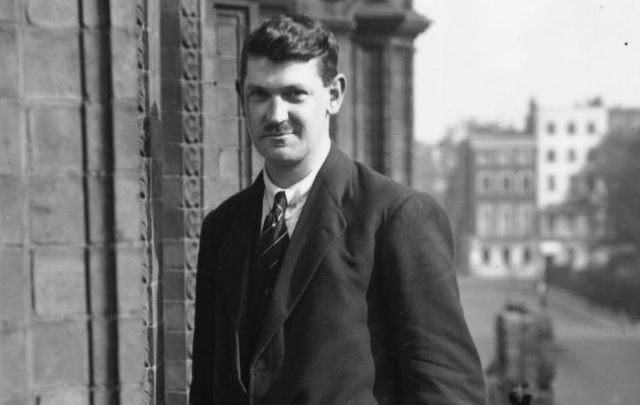Politics
Anglo-Irish Negotiations Commence in London on October 11, 1921

The Anglo-Irish negotiations officially began on October 11, 1921, at 10 Downing Street in London. These discussions ultimately led to the establishment of the Irish Free State, a significant milestone in Ireland’s quest for independence from British rule. The negotiations culminated in the signing of the Anglo-Irish Treaty on December 6, 1921, which marked the end of the intense 1919-1921 War of Independence.
The original treaty document, titled the “Articles of Agreement between Great Britain and Ireland,” is now accessible online, a testament to its historical importance. The signing took place at 2:12 a.m., with key figures from both sides present to witness the historic moment. Among the Irish delegation were notable leaders such as Arthur Griffith, the founder of Sinn Féin, and Michael Collins, who served as Minister for Finance. The British delegation included prominent statesmen like David Lloyd George and Winston S. Churchill.
The handwritten signatures of the Irish delegates remain clearly visible on the seven-page document. They chose to sign their names in Irish, reflecting their cultural heritage. The signatures include those of Griffith, Collins, Robert Barton, Eamon Duggan, and George Gavan Duffy. Collins, who would later be labeled a “traitor” for his role in signing the treaty, believed at the time that it would pave the way for full independence.
The treaty’s signing led to the establishment of both the Irish Free State and Northern Ireland, the latter remaining part of the United Kingdom. This division has had lasting implications for Irish politics and society.
The original treaty document was donated to the National Archives of Ireland in 2002 by the Department of the Taoiseach, ensuring its preservation for future generations. The significance of the treaty was highlighted during an exhibition in 2011, where Jimmy Deenihan, the Irish Minister for Arts, emphasized the importance of presenting the treaty without political bias. He stated, “It is simply an excellent opportunity for the public to see, not only the Treaty itself but also the papers leading up to the signing of the Treaty.”
As the anniversary of these negotiations approaches, the historical context remains vital for understanding modern Ireland. The Anglo-Irish Treaty set the stage for the complex relationship between Ireland and Britain, shaping political discourse for decades to come. The ongoing exploration of this period offers insights into the challenges and triumphs of those who fought for Irish independence.
-

 Top Stories3 months ago
Top Stories3 months agoTributes Surge for 9-Year-Old Leon Briody After Cancer Battle
-

 Entertainment4 months ago
Entertainment4 months agoAimee Osbourne Joins Family for Emotional Tribute to Ozzy
-

 Politics4 months ago
Politics4 months agoDanny Healy-Rae Considers Complaint After Altercation with Garda
-

 Top Stories4 months ago
Top Stories4 months agoIreland Enjoys Summer Heat as Hurricane Erin Approaches Atlantic
-

 World5 months ago
World5 months agoHawaii Commemorates 80 Years Since Hiroshima Bombing with Ceremony
-

 Top Stories3 months ago
Top Stories3 months agoNewcastle West Woman Patricia Foley Found Safe After Urgent Search
-

 Top Stories5 months ago
Top Stories5 months agoFianna Fáil TDs Urgently Consider Maire Geoghegan-Quinn for Presidency
-

 World5 months ago
World5 months agoCouple Convicted of Murdering Two-Year-Old Grandson in Wales
-

 World5 months ago
World5 months agoGaza Aid Distribution Tragedy: 20 Killed Amid Ongoing Violence
-

 World5 months ago
World5 months agoAristocrat Constance Marten and Partner Convicted of Infant Murder
-

 Top Stories4 months ago
Top Stories4 months agoClimbing Errigal: A Must-Do Summer Adventure in Donegal
-

 Top Stories4 months ago
Top Stories4 months agoHike Donegal’s Errigal Mountain NOW for Unforgettable Summer Views









